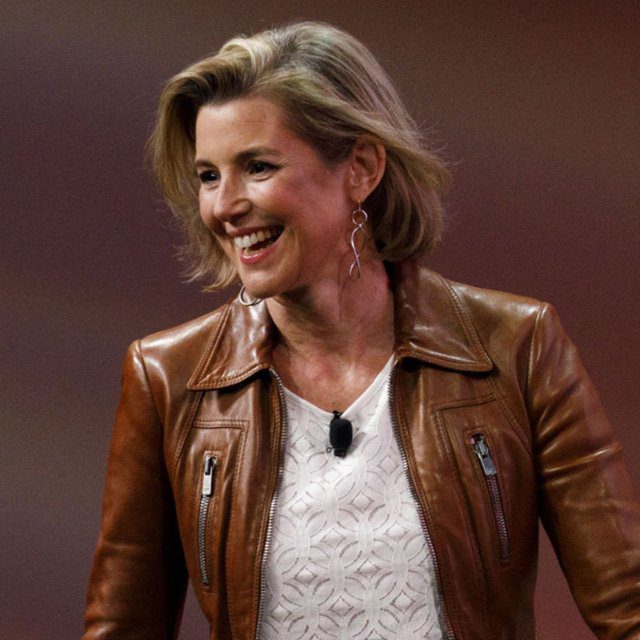How Sallie Krawcheck's Ellevest Is Investing in Women

Ellevest, the investment firm founded and helmed by Sallie Krawcheck, is investing in women-run venture funds to provide working capital for women-led startups focused on affordable housing rentals for women.
This is “the best-kept secret in the industry,” Krawcheck, Ellevest CEO, tells ThinkAdvisor in an interview. “Nobody knows about it. But we’re doing it … It’s tangible dollars so that a woman has working capital for her business.”
Ellevest’s overall mission is to put more money into the hands of women.
Launched as a robo-advisor in 2016, the firm now also provides the services of human private wealth advisors for investors with a minimum account size of $1 million.
Krawcheck describes the firm’s client investing levels as “a continuum.”
By standard indications, Ellevest continues to roar ahead. Despite last year’s distressing stock market, it had record $1.5 billion in assets under management (she explains why in the interview). Today, the firm manages assets of $1.6 billion.
Last April, Ellevest raised $53 million in a Series B funding round. This included investments from several new women-led investors, such as Envestnet and New York Ventures of Empire State Development.
Returning investors include Melinda French Gates’ Pivotal Ventures, Morningstar, PayPal Ventures and Allianz Life Insurance Co. of North America.
Krawcheck, formerly president of wealth management at Bank of America and CEO of Citigroup’s Smith Barney, sallied forth on her own in 2013 when she bought the professional women’s organization 85 Broads and renamed it Ellevate Network.
She was seeking to advocate the power of diversity to help prevent another financial crisis.
Recently, she sold Ellevate back to its original team.
What differentiates Ellevest the most is that the majority of investments are intended to help advance women, Krawcheck says in the interview.
“We’re focusing on people who have been underserved,” she notes.
The firm had been managing the Pax Ellevate Global Women’s Leadership Fund [now Impax], investing in top companies that advance female leadership.
In 2019, Krawcheck stepped down as chair of the mutual fund and no longer has an ownership interest in it.
She began her career as a research analyst and rose to CEO at Sanford C. Bernstein before moving to Smith Barney.
That the financial services industry has failed to advance more women to senior positions, she candidly chalks up to “bias.”
Meanwhile, women in the U.S. in general are disproportionately losing financial ground, Krawcheck argues.
Indeed, the Ellevest Women’s Financial Health Index, launched in September 2022, showed a score of only 1.1 out of 10 in December 2022, matching its earlier “rock bottom” score, according to Ellevest.
“Women haven’t made as much progress as we all would have guessed 10 years ago,” Krawcheck says.
“I wasn’t expecting to see how tough things are for women today. Inflation — if you’re less wealthy [than men] which women are, it hurts more — and the rollback of reproductive rights, a financial and economic issue, have been significant [challenges] for women this year,” she says.
ThinkAdvisor recently interviewed Krawcheck by phone. She was speaking from her Manhattan office.
Making the point that Ellevest is trying to attract clients to environmental, social and governance investing, she said that, for years she was very skeptical about investing for impact.
“But now I’m fully bought in,” she maintains. “I don’t believe that one needs to give up a financial return to have a positive impact.”
Here are highlights of our interview.
THINKADVISOR: What’s new at Ellevest?
SALLIE KRAWCHECK: The private investing we’re doing is the best-kept secret in the industry. Nobody knows about it — but we’re doing it.
Tell me more.
Our investment team has been putting a great deal of time into private investments: workforce [affordable] housing rented to women and families who are in transition — really tangible investments like that.
That’s what we’ve been building. It’s more tangible than buying a stock. We’re investing in women-run venture funds that are, in turn, investing in women-run startups.
It’s investing in fintech, which is health care and health tech for women.
It’s tangible dollars so that a woman has working capital for her business.
Last year there was much grief and aggravation in the stock market, yet your firm had record AUM: $1.5 billion. What are your assets under management now, and to what do you attribute your outstanding performance in 2022?
We have $1.6 billion in AUM.
A driver of growth for us last year and what overcame the negative impact of the market is that two-thirds of our clients have recurring deposits set up to take advantage of dollar-cost averaging.
Another reason is that women tend to weather market downturns better than men. Research has always shown that.
And it didn’t hurt that we have a range of private investments we make for clients with the purpose of earing a substantial return, having a positive impact and being good diversifiers.
They did their job last year.
What’s your forecast for the economy and the stock market?
The bond market is telling us there will be a recession.
But I know that regardless of any forecasts I have for the economy, the stock market will recover before the economy does.
In fact, the stock market recovers decisively [better] when the economy is still uncertain because it’s a discounting mechanism that takes into account so much more bottom-up input than top-down [factors].
Your company keeps expanding with different types of offerings. What are your five- and 10-year plans?
The market we’re addressing is enormous, so we have big plans about all that.
But some things are out of our control. One of them is what the market does and funding that’s available for the business.





